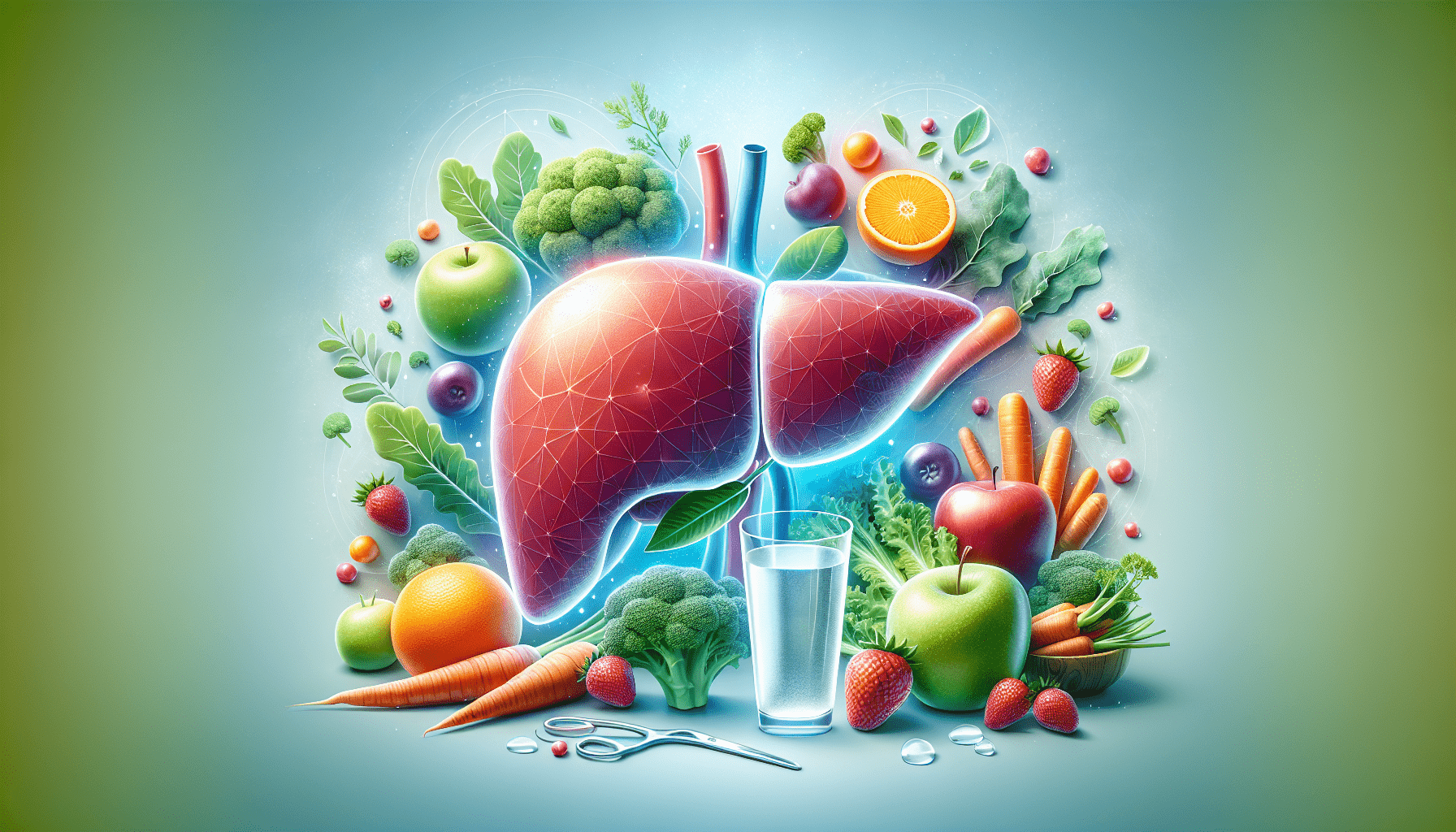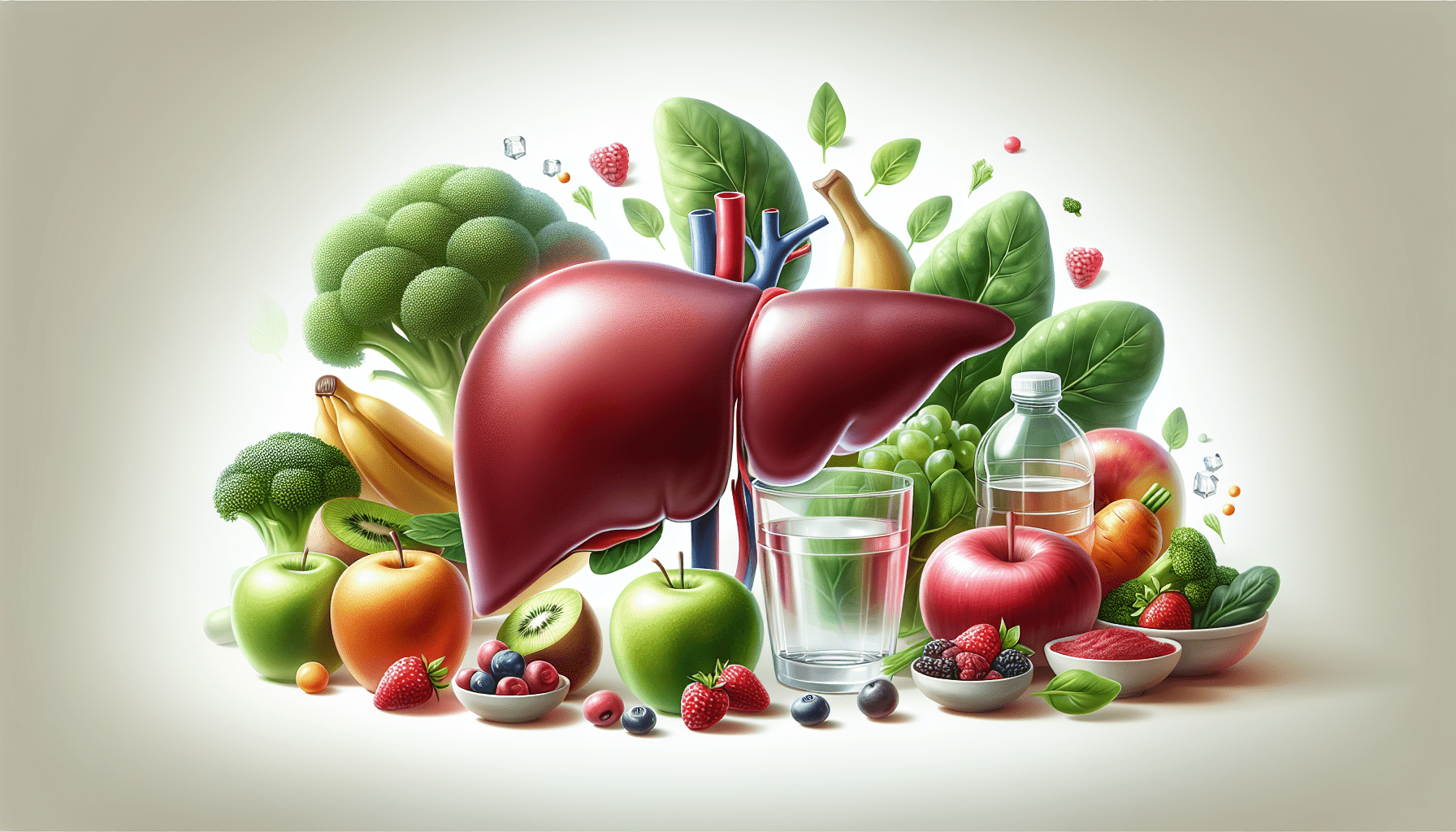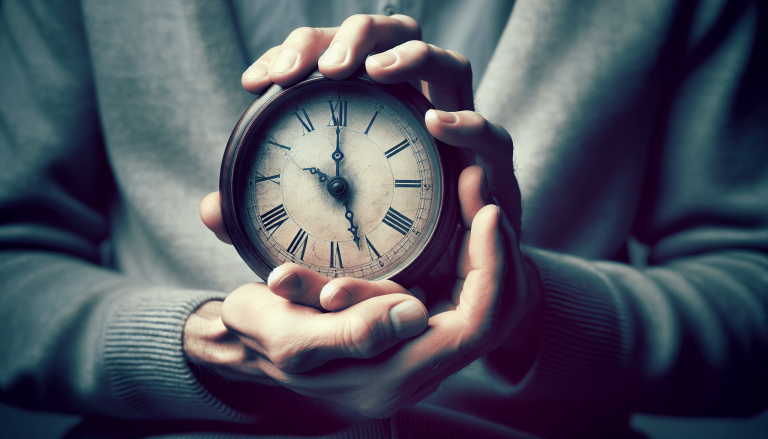How Do I Get My Liver Function Back To Normal?
In the article “How Do I Get My Liver Function Back to Normal,” you’ll find an array of practical steps and insightful tips to help restore and maintain your liver health. By adopting healthy lifestyle choices like a balanced diet, regular exercise, and cutting back on alcohol, you can give your liver the best chance to heal and function optimally. You’ll also learn about the importance of staying hydrated, managing your weight, and possibly including certain supplements after consulting with your healthcare provider. With these simple yet effective changes, you can take proactive steps toward a healthier you and ensure your liver is performing at its best. Have you ever wondered, “How do I get my liver function back to normal?” If you have, you’re not alone. Your liver is one of the most crucial organs in your body, responsible for detoxifying chemicals, metabolizing drugs, and producing proteins essential for blood clotting. When your liver isn’t functioning optimally, it can affect your overall health and well-being.
In this guide, we’ll explore simple and effective ways to restore liver function, from lifestyle changes to dietary adjustments and medical interventions.
Understanding Liver Function
Before diving into how you can restore liver function, it’s essential to understand what the liver does and why it’s so important. Your liver plays a multitude of roles, including:
- Detoxification: The liver clears toxins from your bloodstream.
- Metabolism: It helps in metabolizing fats, proteins, and carbohydrates.
- Protein Synthesis: The liver synthesizes essential proteins like albumin and clotting factors.
- Storage: It stores essential vitamins and minerals, as well as glycogen for energy.
Without a well-functioning liver, your body can’t perform these critical tasks efficiently.
Recognizing Signs of Poor Liver Function
It’s essential to identify the symptoms of poor liver function early on. Here are some common signs to watch for:
- Fatigue: Feeling unusually tired can be a sign.
- Jaundice: A yellowing of your skin and eyes is a telltale symptom.
- Abdominal Pain: Discomfort or pain in the upper right side of the abdomen.
- Swelling: Bloating and fluid retention, especially in your legs and abdomen.
If you experience any of these symptoms, it’s essential to consult a healthcare professional for an accurate diagnosis.

Causes of Liver Dysfunction
Numerous factors can impair liver function. Here are some of the most common causes:
Alcohol Consumption
Excessive alcohol intake can lead to liver inflammation and damage. Long-term abuse can result in alcohol-related liver disease, including fatty liver, hepatitis, and cirrhosis.
Viral Hepatitis
Hepatitis A, B, and C are viral infections that can inflame your liver, leading to acute or chronic liver disease.
Non-Alcoholic Fatty Liver Disease (NAFLD)
NAFLD is increasingly common and is often related to obesity and poor dietary habits. It resembles alcohol-induced liver damage but occurs in people who drink little or no alcohol.
Medications and Toxins
Overuse of certain medications like acetaminophen and exposure to environmental toxins can harm your liver.
Genetic Factors
Conditions like hemochromatosis and Wilson’s disease, which are genetically inherited, can also impair liver function.
Steps to Restore Liver Function
The good news is that your liver is incredibly resilient and capable of regenerating itself to some extent. Here’s how you can support its recovery:
Lifestyle Modifications
Reduce Alcohol Intake
Cutting down on alcohol can significantly relieve the liver. Aim to follow the recommended guidelines, which for men is no more than two drinks per day, and for women, no more than one.
Quit Smoking
Smoking can introduce harmful chemicals that stress the liver. Quitting smoking could have a significant positive effect on liver health.
Dietary Adjustments
Your diet plays a vital role in liver health. Here are some dietary tips:
Opt for a Balanced Diet
Aim to consume a diet rich in fruits, vegetables, whole grains, lean proteins, and healthy fats. A balanced diet provides essential nutrients that support liver function.
| Food Type | Examples |
|---|---|
| Fruits & Veggies | Berries, leafy greens, citrus fruits |
| Whole Grains | Brown rice, oats, quinoa |
| Lean Proteins | Chicken, fish, legumes |
| Healthy Fats | Avocado, nuts, olive oil |
Limit Sugary and Processed Foods
High sugar intake can lead to fat build-up in the liver. Processed foods often contain unhealthy fats and additives that can harm liver health.
Stay Hydrated
Water is essential for detoxifying your body and keeping your liver functioning smoothly. Aim for at least 8-10 glasses of water a day.
Exercise Regularly
Regular physical activity can help maintain a healthy weight, reducing the risk of NAFLD. Aim for at least 150 minutes of moderate aerobic exercise per week.
Specific Foods Beneficial for Liver Health
Certain foods are known to boost liver health. Incorporate these into your diet for optimal liver function:
Garlic
Garlic contains compounds that activate liver enzymes, helping to flush out toxins. It’s also rich in selenium, a mineral known to boost antioxidant action.
Turmeric
Turmeric has anti-inflammatory properties and can help in the regeneration of liver cells. Add it to your dishes or enjoy it as a tea.
Green Tea
Rich in antioxidants, green tea can protect your liver from damage while promoting liver function.
Leafy Greens
Vegetables like spinach and kale are high in chlorophyll, which helps in detoxifying the liver by neutralizing heavy metals and chemicals.
| Beneficial Food | Reason for Benefit |
|---|---|
| Garlic | Activates liver enzymes, rich in selenium |
| Turmeric | Anti-inflammatory, helps regeneration |
| Green Tea | Rich in antioxidants |
| Leafy Greens | High in chlorophyll |
Herbal Supplements
Some herbal supplements are known to promote liver health. However, it’s crucial to consult your healthcare provider before taking any supplements.
Milk Thistle
Milk thistle is commonly used for liver ailments. It contains silymarin, which has antioxidant and anti-inflammatory properties.
Dandelion Root
Dandelion root helps detoxify the liver and gallbladder. It can be consumed as tea or a dietary supplement.
| Supplement | Benefit |
|---|---|
| Milk Thistle | Antioxidant, anti-inflammatory |
| Dandelion Root | Detoxifies liver and gallbladder |
Medical Interventions
Sometimes, lifestyle and dietary modifications aren’t enough, and medical intervention may be required.
Medications
Your doctor might prescribe medications based on the underlying cause of liver dysfunction, such as antiviral drugs for viral hepatitis or medications to treat fatty liver.
Liver Surgery
In severe cases, surgery might be necessary to remove damaged portions of the liver.
Liver Transplant
For those with irreversible liver damage, a liver transplant may be the only option. A healthcare provider can guide you through the process and eligibility requirements.

Regular Monitoring and Check-ups
Regular check-ups are essential for monitoring liver function, especially if you have risk factors like a history of liver disease or high alcohol consumption. Blood tests like the liver function test (LFT) can help assess the health of your liver.
Common Liver Function Tests
Alanine Transaminase (ALT)
ALT is an enzyme found most commonly in the liver. High levels can indicate liver damage.
Aspartate Transaminase (AST)
AST is another enzyme that can indicate liver damage but is also found in other organs.
Alkaline Phosphatase (ALP)
ALP levels can indicate bile duct issues.
Bilirubin
High levels of bilirubin can result in jaundice and indicate liver dysfunction.
| Test Name | What It Indicates |
|---|---|
| ALT | Liver damage |
| AST | Liver damage |
| ALP | Bile duct issues |
| Bilirubin | Jaundice and liver dysfunction |
Preventive Measures
Prevention is always better than cure. Adopting a liver-friendly lifestyle can go a long way in maintaining optimal liver function.
Vaccinations
Vaccinations for Hepatitis A and B can prevent these infections, which are known to cause liver inflammation.
Safe Practices
Avoid Sharing Needles
Using unsterilized needles can expose you to viral infections like hepatitis.
Practice Safe Sex
Using protection can help prevent the transmission of hepatitis.
Hygienic Practices
Hand Washing
Regular handwashing can help prevent viral infections like Hepatitis A.
Stress Management
Believe it or not, stress can also affect your liver health. Chronic stress leads to inflammation and can affect your liver’s ability to detoxify. Consider stress management techniques such as:
- Meditation: Regular meditation can help reduce stress levels.
- Exercise: Physical activity can help in reducing stress.
- Sleep: Ensure you get enough sleep to rejuvenate your body.
Final Thoughts
Getting your liver function back to normal isn’t an overnight process, but with the right steps, it is achievable. Remember, your liver is resilient and can regenerate if given proper care and time. By making lifestyle changes, adjusting your diet, and following your healthcare provider’s recommendations, you can significantly improve your liver health. Take action today, and your liver will thank you tomorrow!
Additional Resources

Simple Way To Cleanse Your Liver (And Get Rid Of Fat)
If you struggle with stubborn belly fat… Then this organ in your body could be the culprit.
That’s because this small organ is 100% necessary for fat burning.
And there’s a new problem that can shut down this organ’s fat-burning. So you gain pounds of fat no matter what diet you try or how hard you exercise. But now a pioneering doctor has uncovered a 2,500 year old secret that reignites your body’s metabolic furnace to burn 24/7.





